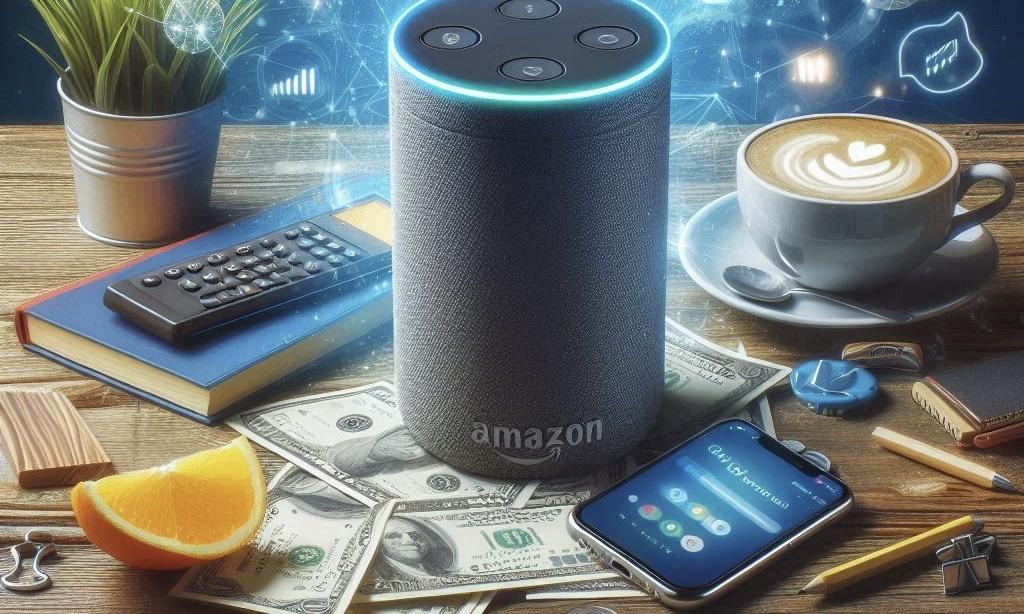Amazon’s ambitious foray into the smart speaker market with its Alexa-powered Echo devices has not gone as planned. According to a recent Wall Street Journal report, the tech giant is losing billions on these products. Initially sold at a loss with the expectation that users would make up the difference by ordering products and services through Alexa, these devices are used predominantly for simple tasks like setting timers.
Miscalculation of Downstream Impact
Amazon significantly overestimated Alexa's downstream impact (DSI). The company had hoped that consumers would extensively use Alexa to make purchases, thereby offsetting the cost of the Echo devices. This assumption has proven incorrect, leading to substantial financial losses. Consequently, Amazon has downsized its devices division, laying off thousands of employees and discontinuing products like the Halo fitness band and Amazon Glow.
Despite these measures, the losses have continued. However, there are several strategies Amazon can employ to turn its Alexa and Echo business around.
Stop Selling Echos at a Loss
Amazon has achieved significant market saturation with over 500 million Alexa devices in circulation. This prevalence reduces the need to sell Echo devices at a loss to increase market share, especially since Google has not been as aggressive with its Nest Mini devices. Amazon can now afford to reduce the aggressive discounting of Echo devices. Instead, bundling them with profitable products like Ring video doorbells could maintain sales momentum without significant losses.
Moreover, introducing subscription-based features for future Echo speakers could provide a steady revenue stream. While consumers may initially resist, a nominal fee could be acceptable for enhanced functionality, mirroring the model used for Ring devices.
Incentivize Ordering by Voice
Amazon’s initial vision for Alexa included widespread use for voice-activated shopping, which has not materialized as expected. Amazon could offer discounts on products ordered through Alexa to encourage this behavior. Although this approach involves an initial cost, it could habituate consumers to use voice commands for shopping, ultimately increasing sales through Alexa.
For instance, if essential items like toilet paper and batteries were cheaper when ordered via Alexa, consumers might be more inclined to explore other discounted products. This strategy could prove less costly than selling Echo devices at a loss and help integrate voice shopping into daily habits.
Enhance Alexa’s Shopping Intelligence
Improving Alexa’s shopping capabilities is crucial. While Amazon has introduced Alexa Enhanced, the intelligent assistant’s functionality still lags behind newer AI developments like OpenAI’s ChatGPT. Enhancing Alexa’s ability to provide relevant shopping suggestions could transform user experience.
For example, if Alexa could notify users of discounts on frequently purchased items, it would encourage more interactions and purchases. Providing helpful shopping tips and personalized recommendations can make Alexa a more integral part of the shopping experience.
Future Prospects
Amazon’s Echo devices and Alexa face significant financial challenges, but strategic adjustments can help turn the situation around. By reevaluating pricing strategies, incentivizing voice orders, and enhancing Alexa’s shopping intelligence, Amazon can better align the product with consumer needs and preferences. These changes could mitigate losses and set the stage for sustainable growth in the smart speaker market.
As Amazon navigates these challenges, its ability to innovate and adapt will be vital to maintaining its competitive edge and achieving long-term success in the rapidly evolving tech landscape.



 Panama Investigates CK Hutchison’s Port Unit After Court Voids Canal Contracts
Panama Investigates CK Hutchison’s Port Unit After Court Voids Canal Contracts  Nvidia Earnings Preview: AI Chip Demand, Data Center Growth and Blackwell Shipments in Focus
Nvidia Earnings Preview: AI Chip Demand, Data Center Growth and Blackwell Shipments in Focus  Hyundai Motor Plans Multibillion-Dollar Investment in Robotics, AI and Hydrogen in South Korea
Hyundai Motor Plans Multibillion-Dollar Investment in Robotics, AI and Hydrogen in South Korea  Amazon’s $50B OpenAI Investment Tied to AGI Milestone and IPO Plans
Amazon’s $50B OpenAI Investment Tied to AGI Milestone and IPO Plans  Pentagon Weighs Supply Chain Risk Designation for Anthropic Over Claude AI Use
Pentagon Weighs Supply Chain Risk Designation for Anthropic Over Claude AI Use  Snowflake Forecasts Strong Fiscal 2027 Revenue Growth as Enterprise AI Demand Surges
Snowflake Forecasts Strong Fiscal 2027 Revenue Growth as Enterprise AI Demand Surges  Samsung and SK Hynix Shares Hit Record Highs as Nvidia Earnings Boost AI Chip Demand
Samsung and SK Hynix Shares Hit Record Highs as Nvidia Earnings Boost AI Chip Demand  OpenAI Pentagon AI Contract Adds Safeguards Amid Anthropic Dispute
OpenAI Pentagon AI Contract Adds Safeguards Amid Anthropic Dispute  Middle East Airspace Shutdown Disrupts Global Flights After U.S.-Israel Strikes on Iran
Middle East Airspace Shutdown Disrupts Global Flights After U.S.-Israel Strikes on Iran  Synopsys Q2 Revenue Forecast Misses Expectations Amid China Export Curbs and AI Shift
Synopsys Q2 Revenue Forecast Misses Expectations Amid China Export Curbs and AI Shift  Toyota Plans $19 Billion Share Sale in Major Corporate Governance Reform Move
Toyota Plans $19 Billion Share Sale in Major Corporate Governance Reform Move  Microsoft Gaming Leadership Overhaul: Phil Spencer Retires, Asha Sharma Named New Xbox CEO
Microsoft Gaming Leadership Overhaul: Phil Spencer Retires, Asha Sharma Named New Xbox CEO  FAA Plans Flight Reductions at Chicago O’Hare as Airlines Ramp Up Summer Schedules
FAA Plans Flight Reductions at Chicago O’Hare as Airlines Ramp Up Summer Schedules  Anthropic Refuses Pentagon Request to Remove AI Safeguards Amid Defense Contract Dispute
Anthropic Refuses Pentagon Request to Remove AI Safeguards Amid Defense Contract Dispute  BlueScope Steel Shares Drop After Rejecting Revised A$15 Billion Takeover Bid
BlueScope Steel Shares Drop After Rejecting Revised A$15 Billion Takeover Bid  Nvidia Earnings Beat Expectations as AI Demand Surges, Stock Rises on Strong Revenue Outlook
Nvidia Earnings Beat Expectations as AI Demand Surges, Stock Rises on Strong Revenue Outlook  Trump Orders Federal Agencies to Halt Use of Anthropic AI Technology
Trump Orders Federal Agencies to Halt Use of Anthropic AI Technology 































